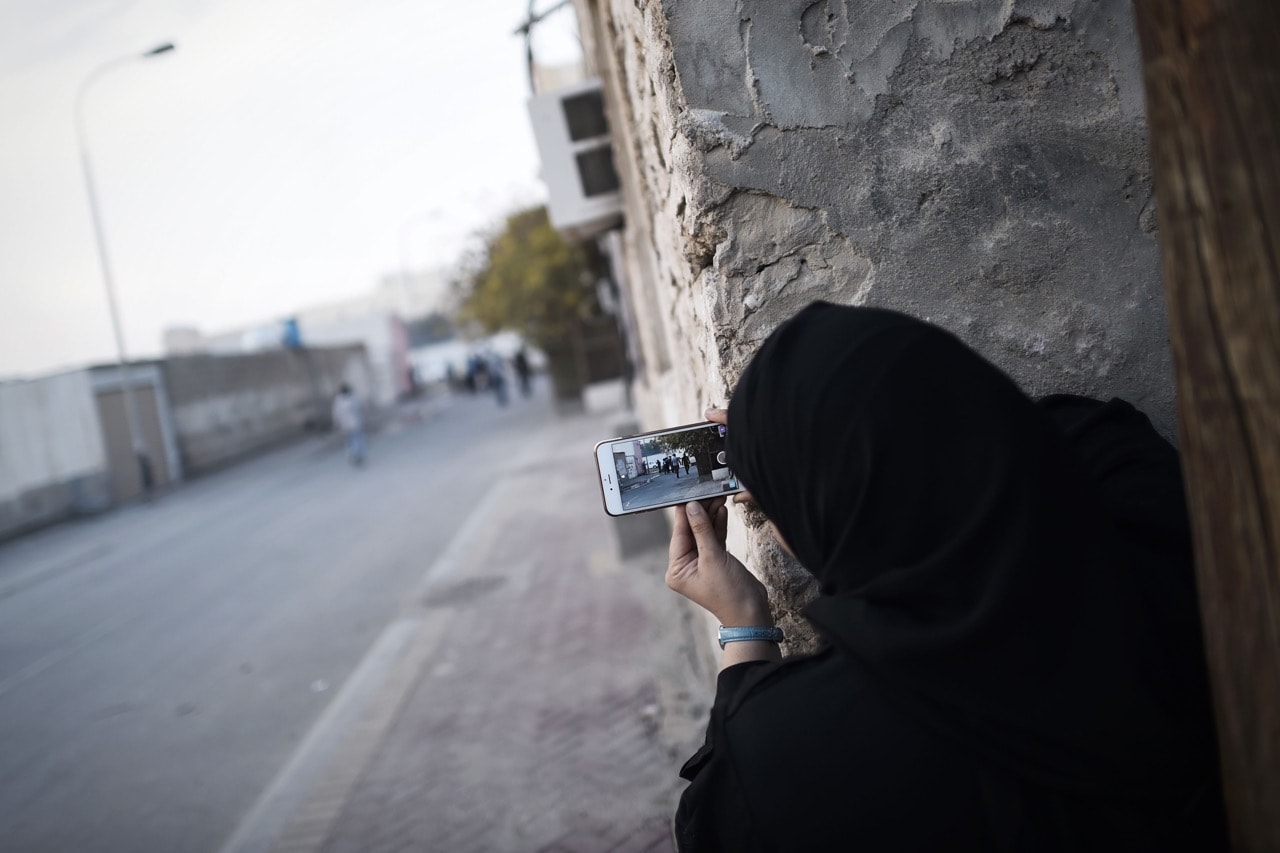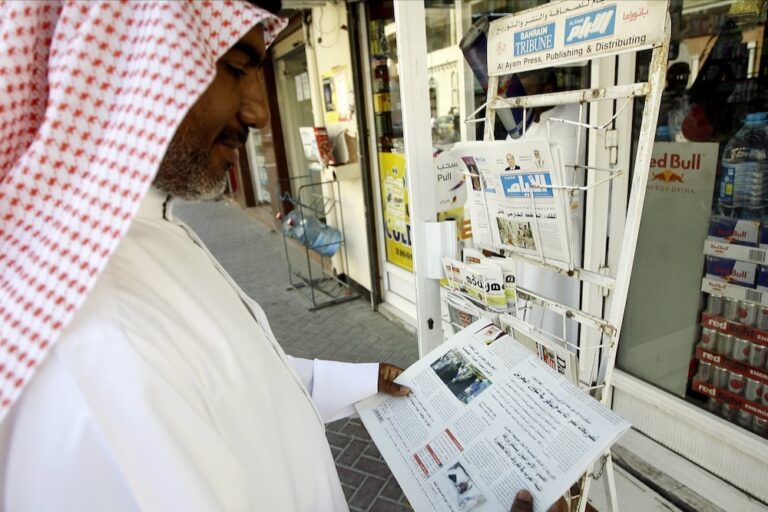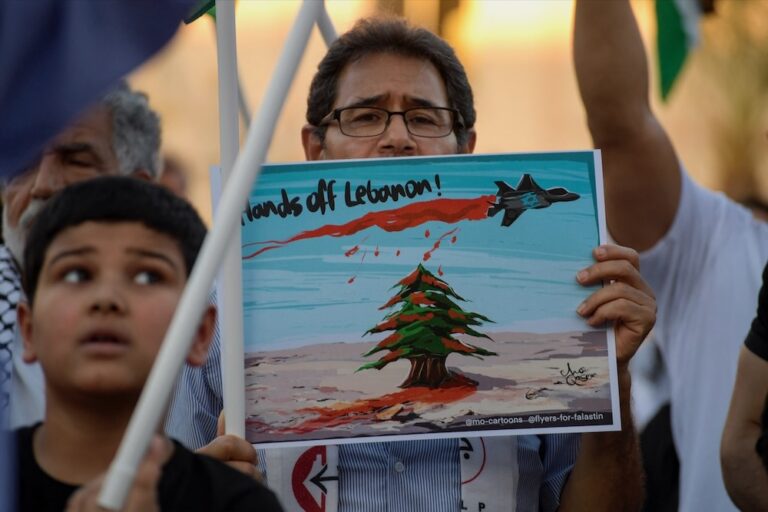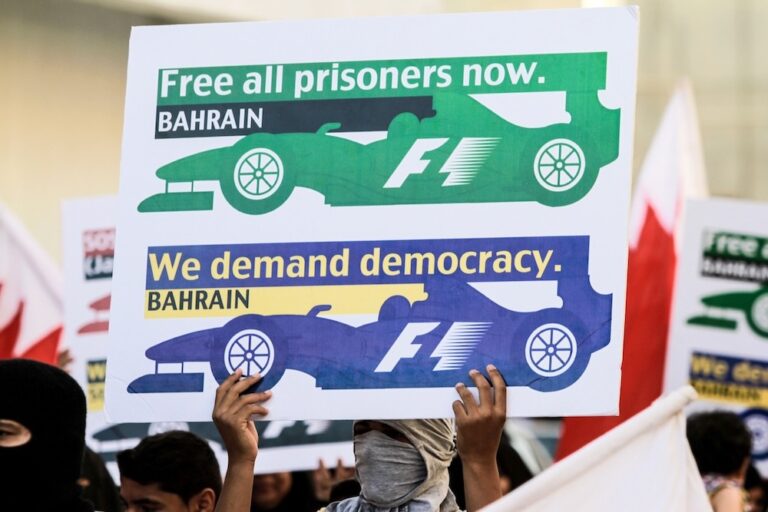The Bahraini Interior Minister announced that the kingdom's security forces would be taking new measures to "track down" activists for criticizing the government on social media.
This statement was originally published on adhrb.org on 28 March 2018.
On Sunday, 25 March 2018, Bahraini Interior Minister Lieutenant-General Sheikh Rashid bin Abdullah Al Khalifa announced that the kingdom’s security forces would be taking new measures to “track down” activists for criticizing the government on social media. That same day, Ministry of Interior (MOI) police made at least five new arrests over such charges as “misusing social media” in what promises to be a further crackdown on online free expression. Americans for Democracy & Human Rights in Bahrain (ADHRB) unequivocally condemns the MOI’s plans to intensify restrictions on Internet communication as well as the detention of any individuals for exercising their basic right to free expression. We call on the international community to push for the release of all prisoners of conscience and to urge emergency reforms before even virtual civil society space is completely closed in Bahrain.
While the interior minister’s statement did not outline specific new policies, it appeared to signal a further expansion of the MOI’s dragnet to target any form of critical expression or activism online. According to the announcement, the MOI – and particularly its General Directorate of Criminal Investigation and Forensics, and General Directorate of Anti-Corruption, Economic and Electronic Security – would pursue all individuals and accounts that “spread malicious rumours that went against social harmony and civil peace [sic]” and :any cyber activity against the norms and traditions of Bahrain whereas those accounts are destructive and not constructive.” The statement explicitly indicated that accounts involved in such activity are already “monitored,” including accounts that “were against the interests of the internal front.” Notably, the interior minister indicated that the authorities will pursue social media activists “even if we need to draft new legislation” – suggesting that the MOI is not only hoping to establish draconian new laws that further criminalize online free expression, but that it may also intend to target users for activity that is not currently illegal.
The MOI’s statement echoed similar comments made by Bahrain’s Prime Minister, Prince Khalifa bin Salman Al Khalifa, in February 2018, when he declared that “any attempt to undermine the citizens’ security or to make them feel insecure because of the misuse of social media networks” will now be considered not just a crime but “cyberterrorism.” Bahrain already maintains wide-ranging restrictions on online free expression, civil society activism, and critical speech across a redundant network of legislation – including the penal code, press law, anti-terror law, and cybercrime law – but new “cyberterrorism” regulations could impose even harsher penalties for online dissent.
On the day of the MOI’s announcement, 25 March, ADHRB has received reports that the authorities arrested five individuals on allegations related online free expression: Abdullah Al-Malood, a soldier; AbdulAziz Mater, a former police officer; Mohammed al-Shorouqi, a former anchor for Bahrain TV; Fahd al-Shamri, an employee of a member of parliament associated with the royal family; and AbdulAziz al-Shamri, Fahd’s brother. These men and others were previously detained and interrogated for online criticism of corruption and other government abuses in February 2018, but ultimately released. Fahd and Abdulaziz al-Shamri are currently reported to be disappeared, putting them at particular risk of torture and ill-treatment. Notably, the arrests included members of Bahrain’s Sunni Muslim minority community and individuals affiliated with the monarchy or security institutions, marking a departure from the government’s primary crackdown on political opposition and members of the marginalized Shia Muslim majority, as well as demonstrating the government’s commitment to target virtually all criticism.
These arrests also come as the government’s wider reprisal campaign against prominent human rights defenders, exiled activists, and political leaders has escalated ahead of the 2018 elections. The authorities have forcibly closed both major opposition societies, Al-Wefaq and Wa’ad, and brought new arbitrary charges against Al-Wefaq’s imprisoned leader, Sheikh Ali Salman. Bahrain’s last remaining opposition society, the smaller Al-Wahdawi, is facing similar attacks: its former leader, Fadhel Abbas, just completed a three-year prison sentence for social media posts on 26 March 2018, and its current secretary-general, Hasan Al Marzooq, has been repeatedly summoned for interrogation over his Twitter account in recent months. Likewise, on 21 February 2018, Bahrain’s High Criminal Court sentenced leading human rights defender and Bahrain Center for Human Rights (BCHR) president Nabeel Rajab to five years in prison for documenting torture and criticizing the Yemen war on social media. He was already serving a two-year prison term for criticizing Bahrain’s press restrictions in media interviews.
“With the authorities violently attacking physical gatherings and forcibly dissolving political and human rights groups, the internet is one of the last places Bahrainis can go to organize and communicate,” said Husain Abdulla, ADHRB Executive Director. “Now the government is promising to close what little remains of even these virtual spaces. The police want to toughen the penalties for the most basic acts of free speech, like a critical tweet, as if a 5-year jail term for human rights defenders like Nabeel Rajab wasn’t enough. Bahrain’s leaders are telegraphing new draconian laws and a renewed crackdown – the international community needs to take the opportunity to head off this campaign now, before it’s too late.”
ADHRB is extremely concerned by the Bahraini government’s commitment to intensify its attacks on online free expression, and calls on it to immediately release all detainees held for exercising the basic human right to free speech. The US and the rest of the international community must pressure Bahrain’s authorities to institute urgent reforms to restore and guarantee independent civic space, both online and off.



